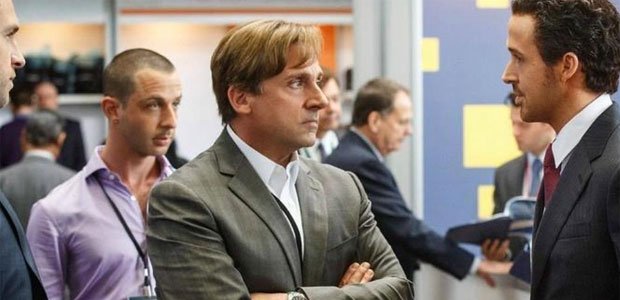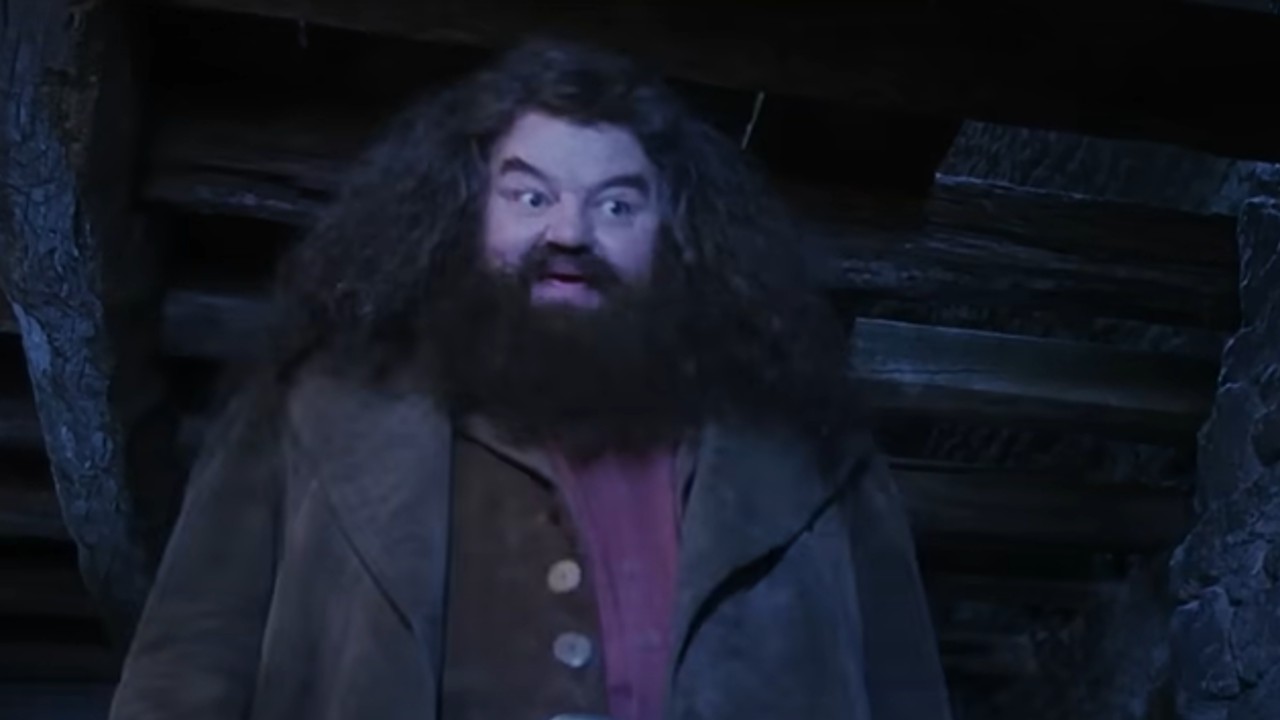As Ryan Gosling’s character lays out bluntly in the early scenes of director Adam McKay’s The Big Short, normal people aren’t really meant to fully understand the financial world. The industry is filled with all kinds of strategies and programs with names that sound like they were pulled out of a hat, and the idea is to confuse you so that you’ll just leave all of your business in the hands of an advisor – who may or may not just use your money to get themselves rich and be happy to leave you in the poor house. One could argue that it’s this particular aspect of the system that The Big Short aims to entirely upend and destroy, and the film does just that – presenting an engaging true story that’s brought to life with fantastic performances and is as entertaining as it is educational about the economic crisis that hit the country like a bus seven years ago.
Based on the book of the same name by Michael Lewis – whose source material brought us the awesome Moneyball a few years ago – the film is built around an ensemble of characters who never actually interact, but are all connected through the fact that they saw the collapse of the housing market coming before anyone else did. This is a group of weirdos and bizarre individuals, including the socially inept Dr. Michael Burry (Christian Bale), the rage-fueled Mark Baum (Steve Carell), the egotistical Jared Vennett (Ryan Gosling) and the young, inexperienced duo of Jamie Shipley and Charlie Geller (Finn Wittrock, John Magaro). Each of them discovers the terrible truth behind the housing market from a different angle – learning that the entire system is being propped up on bad loans that are all but guaranteed to fail – and over the course of several years, all essentially invest in the explosion of a ticking time bomb.
There is obviously an overly-dramatic version of this movie that could have been made, but the greatest asset of The Big Short is the blended tone approach provided by Adam McKay, who also co-wrote the script with Charles Randolph. The filmmaker takes what could be dry-as-toast material about Collateralized Debt Obligations and smartly applies his impressive comedic acumen to get it all across in an entertaining way. Long before it even has a chance of losing the audience, Short grabs them with some impressive fourth-wall breaking that gives the characters opportunities to explain themselves. Perhaps the best moments, however, come when the film breaks away from the narrative altogether, cutting away to Margot Robbie in a bathtub explaining sub-prime mortgages, or Anthony Bourdain comparing CDOs to some nasty seafood stew. It should be noted that learning all of this awful information about the financial system will very likely boil your blood and leave you incensed that nobody saw the collapse coming, but you’ll at least be laughing and smiling before the darker realizations hit.
Equally deserving of praise is also just how non-biased The Big Short manages to be – not pointing fingers at specific people or parties, but instead making you think about the entire governmental system that allowed banks to operate with minimal regulation and let the housing bubble build over the course of multiple decades. There’s a particular level of trust in moviegoers that McKay demonstrates with the film, as he really just does his job to present the facts as true events and follow the stories of the men who saw it all coming. It’s really left to you as a viewer to decide how you feel about all of it – though obviously the bet on the movie’s behalf is that it’s all going to seriously piss you off, and possibly convince you to pay more attention to what’s going on in that arena.
The nature of the narrative isn’t without its pitfalls – specifically that everyone in the audience already knows what happed in 2008, and by extension what happens to all of the main players. But what really keeps you engaged are the fantastic performances from everyone in the ensemble. Though he’s almost entirely isolated in his corner of the story, Christian Bale is fantastic as the oddball Burry and provides The Big Short with some of its best moments as he does extreme levels of research and fights against those in his company who think he’s insane for betting against the housing market. Brad Pitt is also wonderful in what is a more-limited role, playing a former insider turned outsider who gets reluctantly pulled back into the financial world after the soon-to-burst bubble is brought to his attention.
Really, though, it’s Steve Carell’s turn that anchors it all. Mark Baum is not only a good character representation of all the anger that the film generates about the fucked up banking world, but also is the one who makes you realize that the protagonists of the story are not heroes. They’re people who saw a broken system, and ultimately profited from its complete failure (and by proxy the financial ruin of thousands of people). It’s tricky water to navigate, but Carell really pulls it off with an emotional and complex performance.
It’s hard not to be impressed by The Big Short. It tackles complex subject matters with a proportionately complex narrative structure, but with creativity and smart sensibilities that come together as an equally thought-provoking and amusing film. It’s an impressive piece of serious work from the director of Anchorman, and if this is what he can add to the world of prestige films, then I want to see more.

Eric Eisenberg is the Assistant Managing Editor at CinemaBlend. After graduating Boston University and earning a bachelor’s degree in journalism, he took a part-time job as a staff writer for CinemaBlend, and after six months was offered the opportunity to move to Los Angeles and take on a newly created West Coast Editor position. Over a decade later, he's continuing to advance his interests and expertise. In addition to conducting filmmaker interviews and contributing to the news and feature content of the site, Eric also oversees the Movie Reviews section, writes the the weekend box office report (published Sundays), and is the site's resident Stephen King expert. He has two King-related columns.











